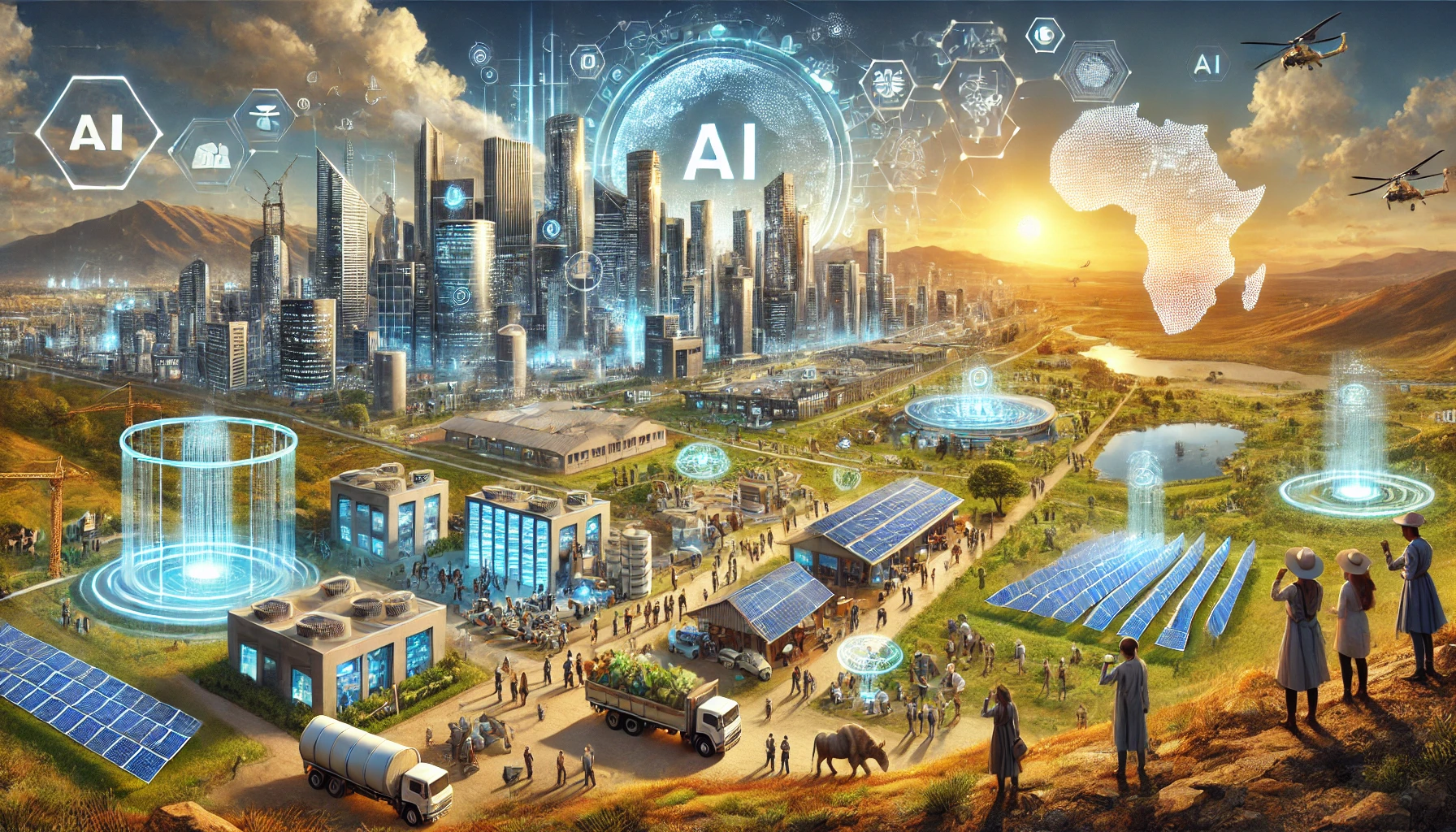Bridging Africa's Digital Divide: The AI Hub's Strategic Blueprint for Sustainable AI Growth
The AI Hub for Sustainable Development, established by the G7 in collaboration with UNDP, aims to empower local AI ecosystems in Africa by fostering partnerships and addressing challenges in data, computing, and talent development, with a focus on ethical and inclusive AI innovation. The initiative seeks to harness AI's transformative potential to drive sustainable development across nine priority African countries.

The AI Hub for Sustainable Development, established by the G7 Leaders’ Summit in collaboration with the United Nations Development Programme (UNDP) and the Aapti Institute as a research partner, marks a significant initiative aimed at empowering local AI ecosystems in Africa. The Hub is designed to act as a central platform to foster partnerships across multiple stakeholders private sector, governments, academia, and civil society with the goal of addressing the digital divide and harnessing the transformative potential of AI for sustainable development. This initiative aligns with the broader agenda of the Italian Presidency, particularly through the Italy-Mattei Plan, which seeks to invest in Africa’s technological evolution. The AI Hub’s strategic focus is on nine priority countries: Algeria, Cote d'Ivoire, Egypt, Ethiopia, Kenya, Morocco, Mozambique, the Republic of the Congo, and Tunisia, which have been identified as key areas for AI-driven development.
Africa’s AI Revolution: A Collaborative Push Forward
The AI Hub’s establishment is driven by the recognition that Africa is on the brink of a significant AI revolution, fueled by a young population, dynamic tech ecosystems, and increasing connectivity. However, realizing this potential requires a coordinated effort to advance AI responsibly and inclusively. The report outlines a comprehensive approach, emphasizing the need for collective action to overcome challenges related to data accessibility, computing power, and talent development. Central to the AI Hub’s strategy is the GROW approach, which is designed to guide research, renew private sector involvement, orchestrate the exchange of talent, and weave together shared public goods to accelerate AI innovation.
Data: The Foundation of Responsible AI
The report highlights three critical pillars that underpin the AI ecosystem: data, compute, and talent. The AI Hub aims to address the challenges associated with these pillars by leveraging public-private partnerships to improve the quality and quantity of data, which is often fragmented and inaccessible across the continent. For example, the Hub proposes increasing collaboration between sectors to standardize and share data, fostering an environment where local capacities for data collection, modeling, and analysis can be strengthened. The importance of creating a sustainable data infrastructure is emphasized, with a focus on ensuring that AI systems are built on robust, representative, and resilient data pipelines.
Compute Power: The Backbone of AI Innovation
On the computing front, the AI Hub recognizes the need for substantial investments in both physical and digital infrastructure to support the scalability and performance of AI applications. The Hub advocates for strategic collaborations that can bring down the cost of computation and increase access to computing resources across African countries. This includes exploring alternative computing models and promoting green compute initiatives to ensure that AI development is not only accessible but also sustainable. The report stresses the importance of building local capacities for compute, encouraging investments in high-performance computing (HPC) facilities, and enhancing regulatory frameworks to foster trust and innovation in the AI sector.
Building Tomorrow’s AI Leaders
Talent development is another critical focus of the AI Hub. The report underscores the need to mainstream AI education and research across the educational ecosystem, building networks of talent that can drive AI innovation and entrepreneurship. By addressing skill gaps and increasing access to resources for AI education, the Hub aims to create an enabling environment where African ‘unicorns’ highly successful startups can emerge and thrive. The Hub also emphasizes the importance of collaboration between industry and academia to develop a workforce equipped with the technical and soft skills necessary for AI innovation.
Ensuring Ethical and Inclusive AI Development
The report further explores the broader implications of AI development in Africa, particularly the risks associated with uneven access to AI technologies. It highlights the need for ethical AI deployment, with a strong emphasis on transparency, accountability, and inclusivity. The AI Hub seeks to address these challenges by promoting the use of digital public goods, such as open-source resources and open data initiatives, to ensure that AI development is equitable and accessible to all. By fostering an inclusive AI ecosystem, the Hub aims to mitigate the risks of digital divides and ensure that the benefits of AI are widely distributed across the continent.
The AI Hub for Sustainable Development represents a bold and collaborative effort to harness the power of AI for the benefit of emerging economies, particularly in Africa. By focusing on the critical pillars of data, compute, and talent, and by leveraging the GROW approach, the Hub aims to catalyze sustainable AI innovation that aligns with global goals for economic growth, social inclusion, and environmental sustainability. This initiative not only highlights the potential of AI to drive development but also underscores the importance of collective action in ensuring that AI serves as a force for good in the world.
- FIRST PUBLISHED IN:
- Devdiscourse










